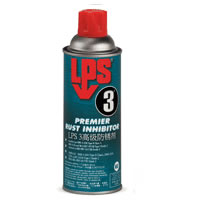
Rust can compromise the integrity of any metal part, including aircraft parts. Also known as iron oxide, it involves the oxidation of iron molecules. When iron moles are exposed to oxygen, such as oxygen in the air or water, a chemical reaction will occur. There are products available, however, to protect against rust. Known as rust inhibitors, they play an important role in the longevity of aircraft parts.
Overview of Rust Inhibitors
Rust inhibitors are products — typically spray products — that are designed to protect metal parts from rust. As the name suggests, it prevents or “inhibits” rust. Once applied, it will create a protective barrier that prevents oxygen from reaching the underlying metal.
Benefits of rust inhibitors include the following:
- Easy to use
- Works almost instantly
- Safe to use on a variety of parts
- Protects parts from premature failure
How Rust Inhibitors Work
There are different types of rust inhibitors, many of which use their own unique formula of ingredients. Most rust inhibitors, though, work by forming a shell-like barrier over the parts with which they are used.
To apply rust inhibitor, you just need to spray it over the part. Regardless of the formula, it will form a barrier over the part. Even if the part contains iron, such as stainless steel, it will be protected from rust. Rust can only occur if oxygen is able to reach the iron molecules. The rust inhibitor will create a waxy outer layer over the metal part so that it’s protected from rust.
How Airplanes Use Rust Inhibitors
Rust inhibitors are used on a variety of aircraft parts, one of which is the landing gear. Landing gear systems are regularly exposed to moisture, hydraulic fluids and other contaminants, which can leave them vulnerable to rust.
In addition to the landing gear, rust inhibitors are commonly used on the wing and tail sections. Harsh weather conditions can degrade these fuselage components. If left unchecked, corrosion and rust may occur. But rust inhibitors offer a simple and effective solution to keep rust at bay.
Electrical systems may benefit from the use of rust inhibitors as well. Corrosion can damage electrical components like wiring, cables and connectors. Rust inhibitors ensure the reliability of electrical systems by protecting these components from corrosion-related degradation.
In Conclusion
Rust can eat through metal aircraft parts. As a precautionary measure, many pilots and engineers use rust inhibitors. When applied to metal aircraft parts, it will form a protective barrier that protects the parts from rust.



